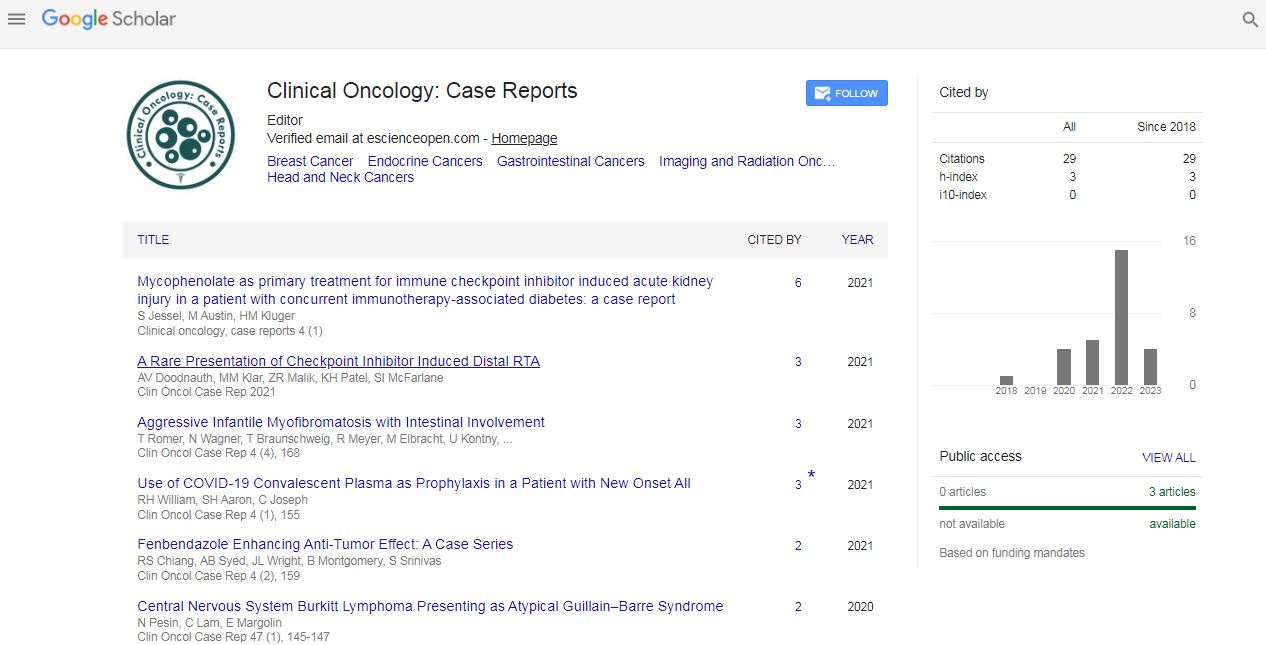Case Report, Clin Oncol Case Rep Vol: 4 Issue: 7
A Rare Case of Squamous Cell Carcinoma of the Rectum Presenting as Hematochezia
Samridhi Sinha1*, Shams Shakil2, Victoria Khalef3, AAM Baqui4, Aamar Ali5, Luca Milone6, David Sherr7, and In Seo8
1Department of Internal Medicine, The Brooklyn Hospital Center, Brooklyn, New York
2Division of Hematology, Hospital Center, Brooklyn, New York
3Division of Gastroenterology, The Bro-Oncology, The Brooklyn Hospital Center, Brooklyn, New York
4Department of Radiology, The Brooklyn Hospital Center, Brooklyn, New York
5Department of Pathology, The Brooklyn oklyn Hospital Center, Brooklyn, New York
6Department of Surgery, The Brooklyn Hospital Center, Brooklyn, New York
7Department of Radiation Oncology, The Brooklyn Hospital Center, Brooklyn, New York
8Department of Nuclear Medicine, The Brooklyn Hospital Center, Brooklyn, New York
*Corresponding Author:
Samridhi Sinha
Department of Internal Medicine
The Brooklyn Hospital Center
121 DeKalb Avenue, Brooklyn 11201
New York City, New York
E-mail: ssinha03@nyit.edu
Received: May 26, 2021 Accepted: July 23, 2021 Published: July 31, 2021
Citation:Sinha S, Shakil S, Khalef V, Baqui AAM, Ali A, Milone L, Sherr D, Seo I (2021) A Rare Case of Squamous Cell Carcinoma of the Rectum Presenting as Hematochezia. Clin Oncol Case Rep 4:7
Abstract
Primary Squamous Cell Carcinoma (SCC) of the rectum originates from the rectal mucosal lining, extending from the rectosigmoid junction to the anorectal ring, and is not a distant metastasis or an extension from the anogenital region. Primary versus extension or metastasis can be distinguished by physical, endoscopic, and radiological findings and immunohistochemistry of the specimen. The pattern of presentation for patients with rectal squamous cell carcinoma is similar to that of adenocarcinoma of the rectum. The most frequently reported symptoms is rectal bleeding and rectal pain. Here we present a case of moderately differentiated primary rectal squamous cell carcinoma in a 65-year-old female patient. With about 150 cases reported in the literature, and due to the rarity of this malignancy, there are no randomized clinical trials or guidelines to dictate treatment. Our case report emphasizes the understanding of primary rectal squamous cell carcinoma and its treatment with definitive chemoradiation, which has resulted in complete remission in our patient.
 Spanish
Spanish  Chinese
Chinese  Russian
Russian  German
German  French
French  Japanese
Japanese  Portuguese
Portuguese  Hindi
Hindi 